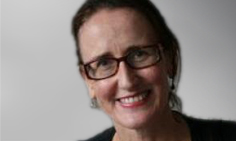FUNDRAISING is big business these days, and hospitals are often at the forefront, wooing major donors, establishing “grateful patient” programs, and actively seeking bequests.
But what is the doctor’s role in all this?
US medical institutions are increasingly relying on “physician fundraisers” to help solicit donations from wealthy patients, according to a paper published in PLOS Medicine last week.
“Physicians are often encouraged to assist in these programs because their existing relationships afford them insights into each patient’s clinical history, personality, and financial situation; experience has shown that physician involvement can increase the frequency and size of donations”, write the researchers from Yale Law School and Harvard Medical School.
There can be little doubt about the value of a treating doctor’s “existing relationships” to eager fundraisers, but where do you draw the line?
Having a fundraising brochure in the waiting room or providing contact details to a patient who asks about making a donation may be, as these authors put it, “fairly benign”.
But, in the US at least, it doesn’t stop there.
Doctors may, for example, be encouraged to notify the fundraiser’s development office of potential donors among their patients, something that is permissible without patient consent under US government regulations, but would be considered an ethical breach here.
“Some physicians … directly engage their patients in conversations about giving”, the PLOS authors write. “They may begin by describing their clinical and research activities and then identify funding needs, or they may broach the subject of giving with wealthy patients who have recovered from a major procedure.”
Fortunately for our mining billionaires, the local code of conduct — Good medical practice: a code of conduct for doctors in Australia — pretty much rules out that kind of spruiking here, saying doctors should not pressure “patients or their families to make donations to other people or organisations”.
It seems hardly necessary to say that the practice of doctors soliciting donations from their own patients raises some fairly hefty ethical issues.
Patients may feel undue pressure to contribute, donors may feel entitled to preferential medical treatment, and confidentiality and patient trust in the doctor may be compromised by such practices, write the PLOS authors.
The authors suggest health care institutions should put in place policies to mitigate such risks.
Many probably already have, but is that really the solution? The cash-strapped hospital, after all, has a vested interest in maximising donations.
And, around the world, a host of private companies have sprung up to help them do just that. Services on offer range from training clinical staff in seeking donations to “data mining”, a term used to describe the routine screening of patients in the search for great wealth or a propensity to philanthropy.
A 2010 report from one American company highlights the role doctors can play in these kinds of fundraising efforts.
In one of its “best practice” case studies, the report commends Penn Medicine (a group of five health care facilities associated with the University of Pennsylvania) for its “strategic use of physicians to promote their grateful patient program”.
“During the past five years, Penn Medicine has found that most of its major donors are motivated by a personal or family experience with a specific disease so certain physicians are better positioned to engage their patients in discussions about philanthropic support”, the report says.
The very successful program saw 75 “key physician partners” trained in how to identify “prospects” and asked to devote a certain number of hours each year to fundraising.
One of the “steps to success” was focusing “physician attention on securing major gifts from individuals”.
Personally, I’d rather my physician’s attention was focused elsewhere, but then I’m not likely to ever be a prospect.
Jane McCredie is a Sydney-based science and medicine writer.

 more_vert
more_vert
Of course using personal identifiable patient information for anything other than that which is related to the patients treatment is a gross breach of Hippocratic ethics. The conflicts of interest it introduces are immediate, and the damage it may do to the trust between doctor and patient is potentially large. We would have no choice but to refuse such a request, and I hope our American colleagues do the same. I should note that use of (usually) strictly deidentified data for research or audit is quite different in both theory and practice.
I have been fundraising for oavrian cancer research for 15 years by running marathons or climbing mountains. I have sent out information requesting support from my patients and referring doctors. Not once have I received a negative comment from a patient nor her family.The proof of the pudding is surely the community’s response? By the way,I will be climbing a 22000 foot peak in the Himalayas for ovca research in April….all donations gratefully received….http://www.womenscancerfoundation.org.au